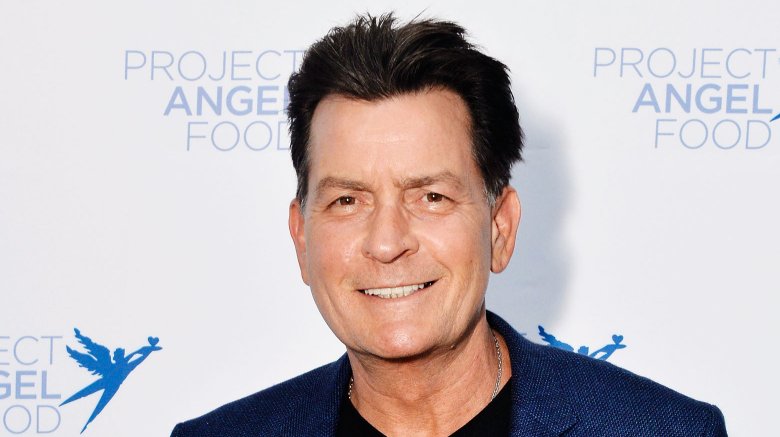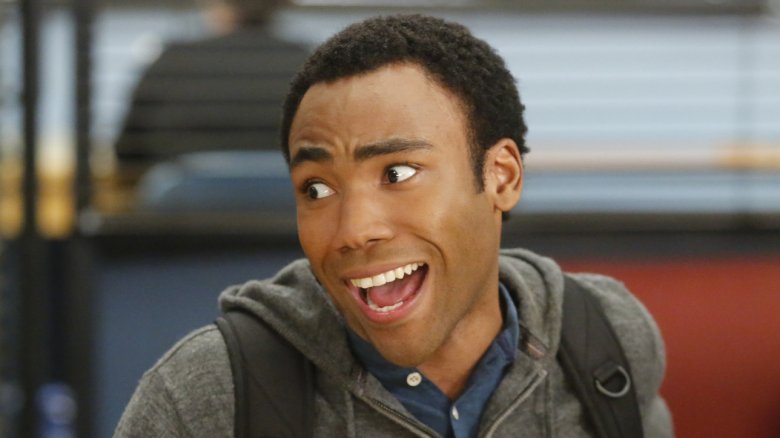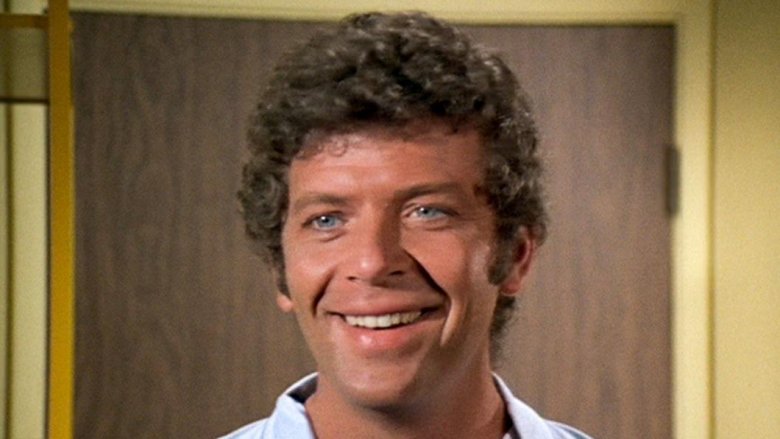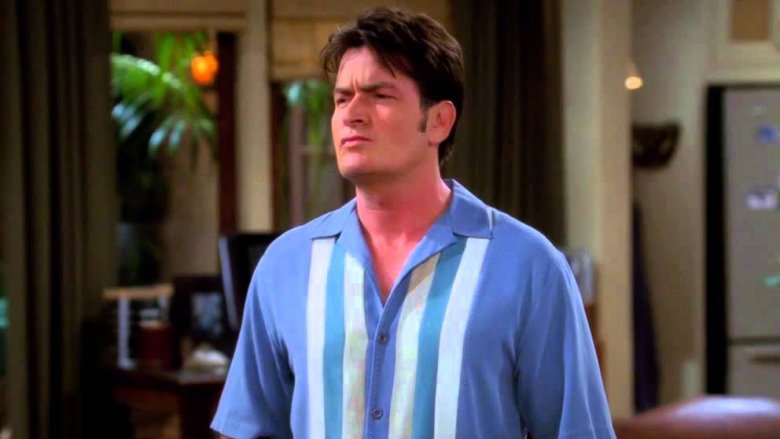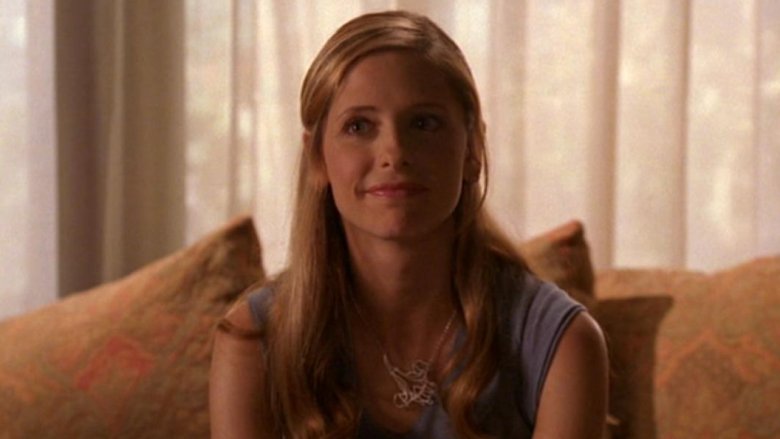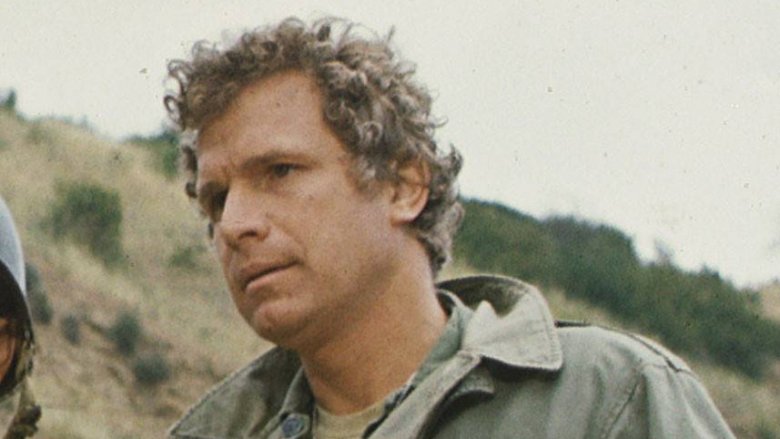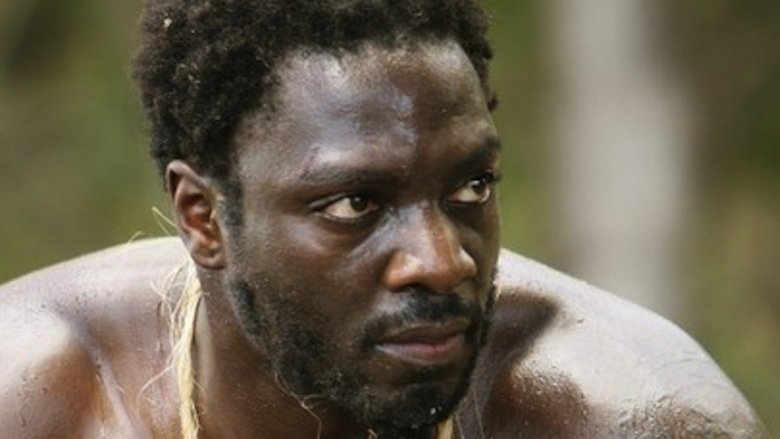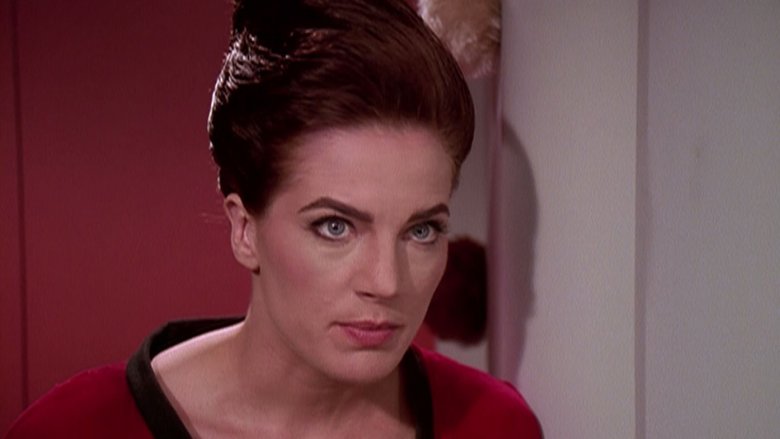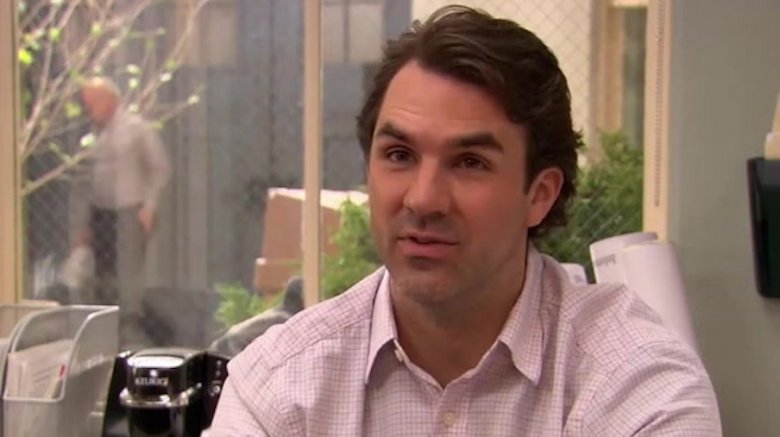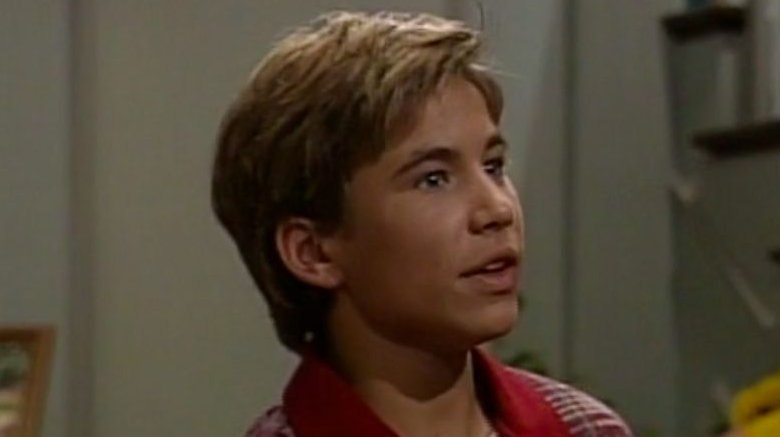TV Show Actors Who Refused To Return For The Finale
If a show runs for long enough, it's bound to lose a major cast member along the way. Actors are artists, and doing a sitcom for more than a few years or appearing on an emotionally intense drama just might not interest them anymore. They might want to go star in movies or give Broadway a shot. Of course, there are those stars who get fired from a show for a grievous offense, or they just quit because they can't stand their co-workers.
But eventually, all is forgiven, and the star returns for the much-hyped series finale. Even Shelley Long showed up for the last episode of Cheers after a highly-publicized exit years earlier, and the departed Topher Grace came back to That '70s Show for its big-wrap up installment. However, those fond farewells don't always turn out the way fans might like. Here are the actors and actresses who left hit shows and very noticeably didn't come back to say goodbye on the final episode.
Donald Glover couldn't go back to school
Community was never exactly a ratings juggernaut, but the quirky, innovative NBC comedy set at a Colorado community college propelled its cast to fame. Among the stars it helped create: Allison Brie, John Oliver, and Donald Glover. As Community progressed, Glover, a former 30 Rock writer, additionally established himself as a stand-up comedian and musician (under the name Childish Gambino). Flash-forward to 2018, and Glover is the Emmy-winning star and creator of Atlanta, the highlight of Solo: A Star Wars story as the young Lando Calrissian, and a chart-topping hip-hop artist with the song "This is America."
Glover left Community midway through its fifth season in 2013. His character, high school jock turned college nerd Troy Barnes, got a suitably bizarre send-off, setting out on a sailing trip alongside his idol LeVar Burton. In a letter to fans he posted on Instagram, Glover said that he left Community because he "wanted to be on [his] own" and that he "kept looking for something to be in with." NBC canceled Community not long after, only for the short-lived streaming service Yahoo Screen to revive it for a sixth season. Neither Glover nor Troy showed up. In 2016, he clarified why he didn't return to Community for that final stretch. "I just like endings," he said. "It's important that things end. I'm glad things end because it forces things to progress."
Here's the story of an adamant man named Brady
TV's favorite dad, Robert Reed, often clashed with The Brady Bunch creator and producer Sherwood Schwartz over what he felt were insipid storylines. "He wound up on a show that he didn't want to do in the first place, and it became more and more difficult for him," Schwartz once told ABC News. But after five years of reluctantly acting in silly Brady Bunch episodes, Reed thought the fifth season finale in 1974 went too far.
The plot: on the eve of Greg Brady's high school graduation, he accidentally dyes his hair a comical orange. Reed thought all that was so dumb that he refused to appear in the episode at all. It's very noticeable and strange that devoted parent Mike Brady doesn't attend his eldest son's graduation. Unfortunately, the fifth season finale would prove to be the series finale of The Brady Bunch. After filming, ABC didn't order a sixth season, making Reed conspicuously gone for the last episode of his own long-running show.
A finale in the key of Sheen
No one before or since has ever quit their hit TV show the way Charlie Sheen left Two and a Half Men in 2011. After a whirlwind series of events that included a weekend-long party in Las Vegas with an adult film star, a stint in rehab, production on the series shutting down to accommodate him, and the actor saying extremely nasty things to the media about show creator Chuck Lorre, CBS prematurely ended the eighth season of the hit show, and Sheen wound up fired and replaced with Ashton Kutcher.
But when Two and a Half Men wrapped up in 2015, Lorre was willing to let bygones be bygones, and invited Sheen to reprise his role as degenerate jingle writer Charlie Harper for the show's series finale. That didn't happen, but an actor dressed up to look like Sheen (from behind) appeared, and was killed by a falling piano. Lorre explained all in a post-credits "title card" message. He had pitched Sheen on the idea of showing up to deliver "a maniacal rant about the dangers of drug abuse. He would then explain that these dangers only applied to average people. That he was far from average. He was a ninja warrior from Mars. He was invincible. And then we would drop a piano on him. We thought it was funny. He didn't."
Buffy the vampire disappointer
When Angel ended its five-year run in 2004, it wasn't just the end of a popular series, it was the end of an important TV franchise. Angel was a spinoff of Buffy the Vampire Slayer, which ended a year prior. The final installment of Angel could have provided a nice opportunity to resolve the relationship between vampire Angel (David Boreanaz) and vampire slayer Buffy (Sarah Michelle Gellar), his old flame and probably one true love. It was a little surprising, then, when Angel wrapped up by focusing entirely on its own plot lines and neglecting to return to its roots.
Joss Whedon, the creator of both shows, told TV Guide that this was all by design. "I want to end the show with the people who've been in the trenches together, the characters who have lived—and occasionally died—together, the regulars," Whedon said. He didn't want the finale to "revolve around a guest star," in other words. That said, Whedon says he did ask Gellar to come on the next-to-last episode of Angel, but she couldn't do it because she was filming The Grudge in Japan at the time.
Wayne's world of issues
The Korean War-set, based-on-a-movie-based-on-a-book M*A*S*H ran for 11 seasons of classic television (far longer than the actual Korean War), culminating in a final episode in 1983 that's still the most-watched TV episode of all time. But one of its original stars, Wayne Rogers as military thoracic surgeon "Trapper John" McIntyre, was nowhere to be found. According to M*A*S*H staff writer Ken Levine, Rogers left the show after the end of its third season out of creative and professional frustration.
He'd been promised by showrunners that episodes would be built around two equal leads, the duo of Trapper John and Hawkeye Pierce (Alan Alda). But before long, M*A*S*H evolved into "The Alan Alda Show," and Rogers became relegated to the background. That, coupled with some conflicts over financial dealings and contract clauses, made walking away from the show very easy for the actor. Over the years, Rogers came to regret his decision to leave, even though he became a successful businessman and financial consultant. "If I had known that the show was going to run that long," Rogers once said according to TV Guide, "I probably would have kept my mouth shut and stayed put."
Adewale Akinnuoye-Agbaje told Lost to get lost
Adewale Akinnuoye-Agbaje portrayed one of the best and most interesting characters on Lost, a show that didn't exactly lack for compelling figures or plots. He took on the role of Mr. Eko, a warlord/fake priest/drug smuggler/monster fighter. Mr. Eko's involvement in the Lost mythos was supposed to last as long as four seasons, but producers were forced to write the character out after just one and a half when the actor decided that he wanted to leave the show.
Producers really wanted Akinnuoye-Agbaje to make one more appearance in the finale to help shed a little more light on the show's famously complex and confusing mysteries. Akinnuoye-Agbaje was amenable to the idea of returning, even though his character had died in the shapeless jaw of the smoke monster, but he wanted five times the money the show was willing to pay. And so, Akinnuoye-Agbaje didn't get to reunite with his former fellow castaways.
Terry Farrell deep-sixed a return to Deep Space Nine
From the beginning of Star Trek: Deep Space Nine, Terry Farrell portrayed Jadzia Dax, Chief Science Officer on the titular space station. Among Jadzia's most interesting contributions to the syndicated science-fiction series: a relationship with a symbiont, a marriage to fan favorite Star Trek universe character Worf, and her death at the hands of Dukat at the end of the show's sixth season in 1998.
Not long after her final appearance on Deep Space Nine, Farrell took a major role on the hit CBS sitcom Becker, which ostensibly kept her too busy to go back to Space for its final episode in 1999. But according to the Star Trek compendium The Fifty Year Mission (via Reddit) Farrell wasn't too keen on returning because executive producer Rick Berman behaved abominably toward her. "In my opinion, he's just very misogynistic," Farrell said. "He'd comment on your bra size not being voluptuous."
Then, realizing that her contract with the show was up at the end of season six, Farrell asked to appear in fewer episodes than in previous seasons, but she says Berman wouldn't have it. "Basically he was trying to bully me into saying yes. He was convinced that my cards were going to fold and I was going to sign up." Farrell held firm. "So I finally did have a conversation with him and asked to cut down my number of episodes or just let me out."
More like Mark Brendana-quits
When Parks and Recreation began in 2009, it was a low-energy clone of The Office (it was initially conceived as a spinoff of that show) about Leslie Knope (Amy Poehler), a city employee in Pawnee, Indiana, who struggles with her job and can't get over her ex-boyfriend—and co-worker—Mark Brendanawicz (Paul Schneider). The series quickly evolved into a crackling ensemble workplace comedy (and Leslie Knope became a very capable, extra-driven go-getter), to the point where there wasn't much need for Mark.
"I signed up for a specific character that was changed in mid-season," Schneider told ScreenCrush. "And, all of a sudden, I was kind of confused and kind of having a lot less to do." Schneider amicably walked away, which forced writers to abandon Mark's long-term arc: to come and go from the show as he'd join the private sector, hate it, return to government work, hate that, go back to the other world, and repeat. Since Schenider bailed so early, that plot never happened, and he was scarcely mentioned again, making him fairly irrelevant to the show's flash-forward final episode.
Jonathan Taylor Thomas didn't go "Home" again
Home Improvement was a family show with a little something for everyone. For example, dads enjoyed watching macho Tim "The Toolman" Taylor (Tim Allen) botch one project after another, while tween girls showed up for Tiger Beat pinup Jonathan Taylor Thomas, who played middle Taylor son Randy. That is, they did until JTT left the series in 1998. Why?
"I wanted to go to school, to travel, to have a bit of a break," Thomas told People. He did go on to study history and philosophy at Harvard, but he also appeared in a couple of movies after he left Home Improvement. That aggravated Allen. "He said it was about going to school, but then he did some films," Allen told TV Guide (via E!) "Did he want to do films? Did he want to go to school?" When Thomas returned to the show for a Christmas episode in late 1998, Allen confronted Thomas. Things got awkward enough that Thomas didn't return for the show's finale in the spring of 1999. But there's a happy ending: Thomas later appeared on a few episodes of Allen's next show, Last Man Standing.
